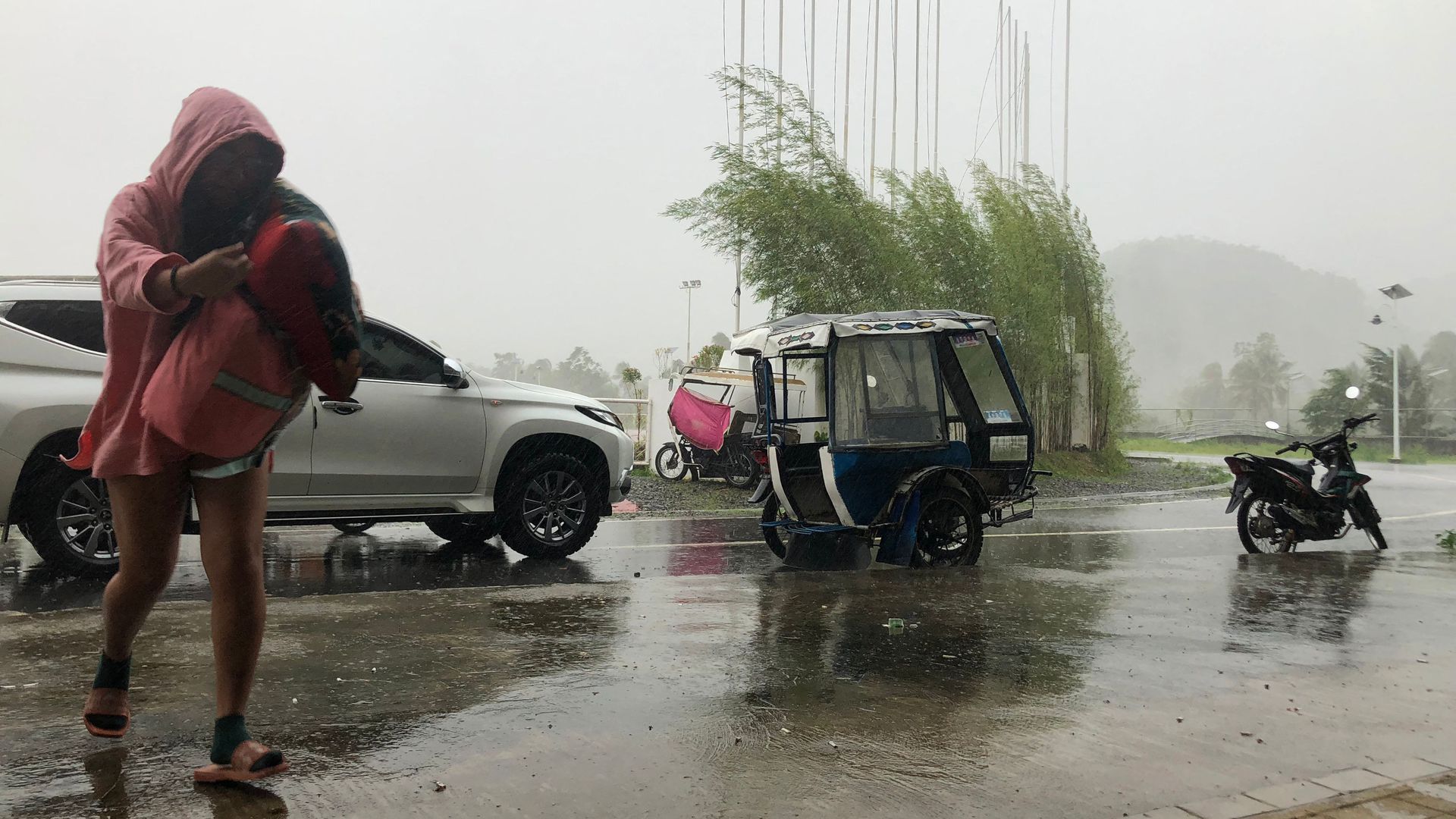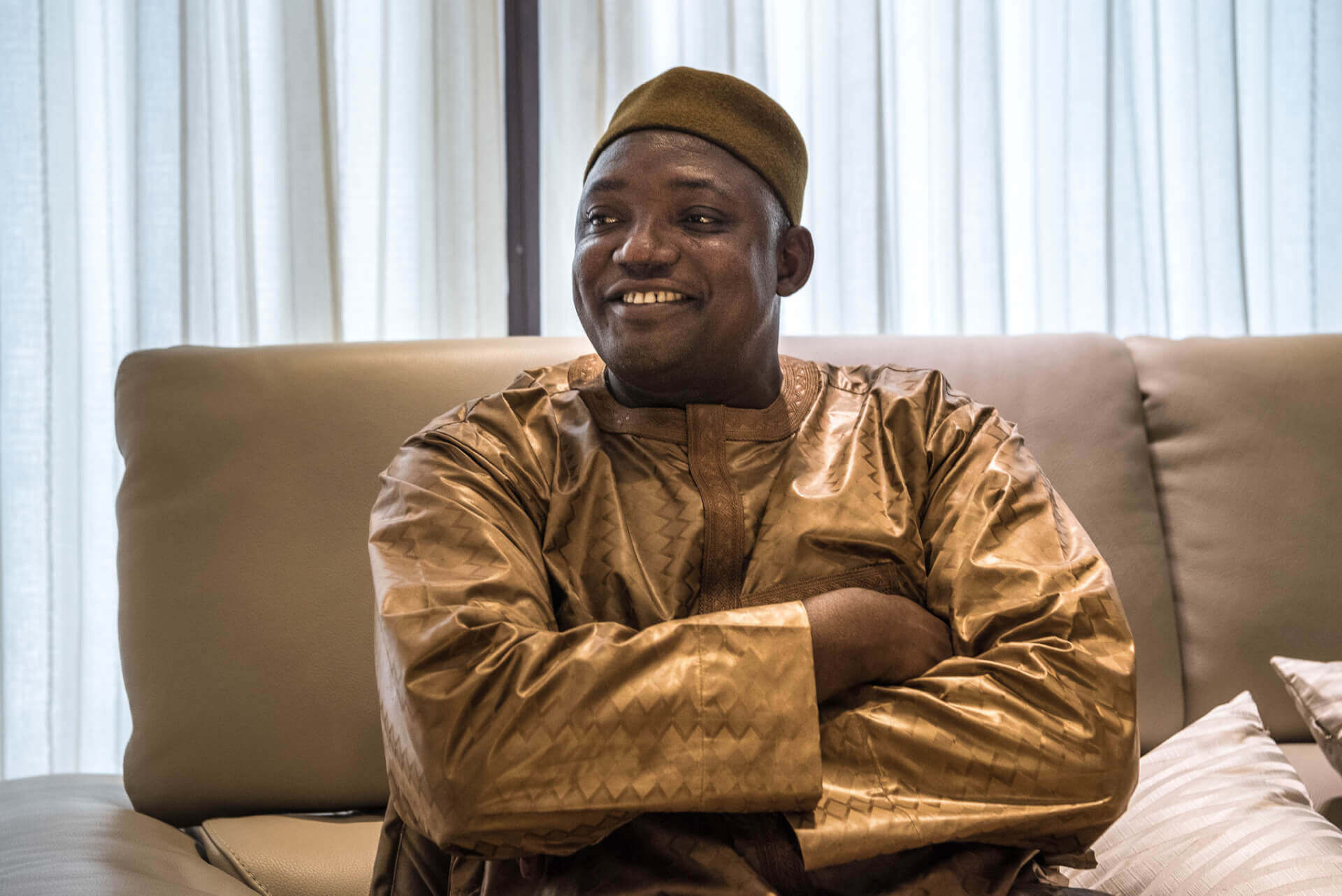South Asia
Amid a global chip shortage, the Indian government approved a $1 billion incentive program for semiconductor and display manufacturers, further cementing India’s position as a growing hub for production in the electronics and technology sector. According to government sources cited by Reuters, Israel’s Tower Semiconductor, Taiwan’s Foxconn, and a Singaporean company have expressed their interest in setting up chip factories in India. [Reuters]
Sri Lankan Foreign Minister GL Peiris handed over a financial grant to the family of the Sri Lankan manager who was recently lynched in Sialkot, Pakistan. He also informed the family of their continued cooperation with Pakistan to ensure that the financial benefits from the Pakistani employer are released to the family soon. [Sri Lankan Ministry of Foreign Affairs]
Central Asia and the Caucasus
Azerbaijani police on Wednesday violently dispersed protesters and detained at least 20 people in Baku for demanding the immediate release of opposition leader Saleh Rustamli, who was arrested in 2018 and sentenced to seven years in jail on fraud charges. Rustamli, who is on a hunger strike, and his supporters have rejected all charges and called them politically motivated. [RFE/RL]
Kazakhstan’s Baikonur rocket launch facility will be renamed after former President Nursultan Nazarbayev once it is completely renovated next year. After construction is completed, the platform will be used to launch Russia’s new Soyuz-5 vehicles, which will run on cleaner fuels, instead of the toxic ones that are currently in use and have polluted parts of the Kazakh countryside. [Eurasianet]
East and Southeast Asia
Almost 30,000 residents in the Eastern Samar province of the Philippines have been evacuated over the past two days, as a strong typhoon is expected to make landfall on Thursday afternoon. The country’s weather bureau reported that Typhoon Rai, which has been upgraded to the second-highest classification of a Category 4 storm, has wind speeds of 165 kilometres per hour. [The Straits Times]
Cambodian Prime Minister Hun Sen on Wednesday appointed Prak Sokhonn, the country’s foreign minister, as the Association of Southeast Asian Nations’ new special envoy to Myanmar for 2022. [The Straits Times]
Europe
On Wednesday, German Chancellor Olaf Scholz said Germany is open to constructive dialogue with Russia but once again warned that invading Ukriane would yield severe consequences. During his first speech to the German Parliament, the Bundestag, Scholz expressed concern over the situation at the Russia-Ukraine border and vowed to fight the COVID-19 pandemic and take ambitious measures to fight climate change. [Politico]
On Wednesday, the European Commission (EC) raised serious concerns over the rule of law in Poland. EC Vice President Margaritis Schinas, while speaking to the European Parliament, highlighted the independence of the judiciary, human rights violations, the total ban on abortion, and discrimination based on sexual orientation as major issues in the country. Schinas said that the EC is ready to use its treaty powers to ensure that Poland complies with the European Union’s laws. [The First News]
The British Migration Advisory Committee, which was set up by the Home Office, said that the government must work towards relaxing visa rules to ease the process of recruiting health care workers. The United Kingdom’s departure from the European Union has led to a shortage of social care workers. [Politico]

Latin America and the Caribbean
Former Chilean President and current United Nations High Commissioner for Human Rights Michelle Bachelet put her weight behind leftist Chilean presidential candidate Gabriel Boric in the country’s run-off election this Sunday against far-right candidate José Antonio Kast. On 21 November, Boric and Kast emerged as the top two candidates in the first round of voting, respectively winning 25% and 28% of the votes. They seek to replace Sebastián Piñera, who has served his second term in office since 2018 after his first term between 2010 and 2014. [MercoPress]
A plane crash at the international airport in Santo Domingo, Dominican Republic killed all nine crew members and passengers on board. Among the seven passengers, six were foreign nationals and two were minors. The cause of the accident is yet to be determined. [Telesur]
Middle East and North Africa (MENA)
Human Rights Watch (HRW) has urged the United Nations (UN) to deploy monitors to Sudan’s Darfur region, where violent ethnic clashes between Arab and non-Arab groups have killed more than 180 people since October. “The UN’s priority should now be to ramp up human rights monitoring and ensure rigorous scrutiny of Sudan’s efforts to protect millions of Darfuris,” HRW said. [Associated Press]
The Lira slid by 4% on Tuesday to a low of 14.4 against the United States Dollar (USD), just a day after Turkey’s Central Bank intervened to prop up the currency after it crashed as much as 7% to a record low of nearly 15 to the USD. Critics have blamed the fall of the Lira on Turkish President Recep Tayyip Erdoğan’s policy of cutting interest rates. [Reuters]
North America
On Wednesday, the White House announced the allocation of additional Federal aid to Kentucky amid United States (US) President Joe Biden’s visits to the storm-damaged towns of Mayfield and Dawson Springs. Last week, an unseasonal tornado tore across six US states; Kentucky was the hardest-hit state with 74 deaths and a further 100 people unaccounted for. [The Hill]
Lawmakers from the United States (US) Senate on Wednesday voted 89-10 to approve the $770 billion National Defense Authorization Act (NDAA). The NDAA authorised a 5% increase in military spending this year, with strong support from both Republicans and Democrats. The NDAA includes $300 million in security assistance for Ukraine and $7.1 billion for the Pacific deterrence initiative. Lawmakers were also successful in approving major judicial reforms within the military. [The Voice of America]
Oceania
Caroline Kennedy, daughter of late United States (US) President John F. Kennedy, was appointed as the US’ ambassador to Australia by current President Joe Biden. Kennedy’s nomination is yet to be confirmed by the Senate. Australian Foreign Minister Marise Payne welcomed Kennedy’s nomination and said, “She would bring deep political networks in Washington and a keen understanding of our Indo-Pacific region, including from her time as US Ambassador to Japan.” [The Sydney Morning Herald]
On Thursday, Australia’s honey producers won a four-year trademark battle with New Zealand over the use of the term “manuka honey.” The Manuka Honey Appellation Society, consisting of New Zealand honey producers, appealed against Australian beekeepers selling products using the word “manuka” in Britain. They argued that they had the right to use the term “manuka” as it is a Maori word and thus a distinct product of New Zealand. However, Britain’s Intellectual Property Office rejected the trademark application, citing a lack of evidence. [The Age]
Sub-Saharan Africa
The Gauteng High Court in Johannesburg has overturned now-former National Commissioner of Correctional Services Arthur Fraser’s decision in September to grant former South African President Jacob Zuma medical parole, deeming it to be unlawful and ordering him back to prison. The Correctional Services Department will now appeal the judgment. Zuma, who was in office from 2009 to 2018, is on trial for corruption concerning a 1999 arms deal with five European companies. He is currently serving a 15-month sentence, which began in June, for being in contempt of court, after refusing to attend an earlier hearing. The trial will resume in April 2022. Protests against his arrest back in June resulted in over 200 deaths. Keeping this in mind, the South African Human Rights Commission has urged citizens to remain calm in light of the latest judgment. [News24]
Gambian opposition leader Ousainou Darboe, who lost the recent election to President Adama Barrow, has filed an appeal of the results with the Supreme Court, alleging several irregularities, such as vote-buying and influencing the electoral commission. Barrow was re-elected with 53% of the votes to Darboe’s 27%. International observers, however, deemed the election to be largely free and fair. [Africa News]

